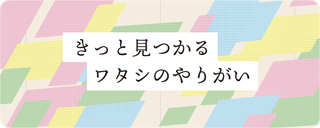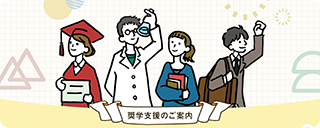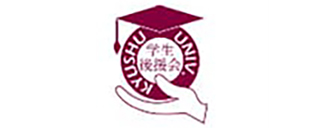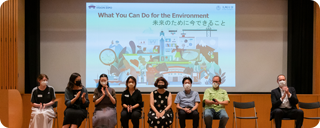About 九州大学について
平成30年度 秋季入学式・外国人短期留学プログラム開講式(2018年10月1日)
- トップページ
- 九州大学について
- 総長室
- 歴代総長
- 歴代総長メッセージ(久保千春元総長)一覧
- 平成30年度 秋季入学式・外国人短期留学プログラム開講式(2018年10月1日)
Address by the President Fall 2018 opening ceremony
October 1st, 2018
I am delighted to be here today at the Fall 2018 entrance ceremony to deliver this message and to welcome 383 new students from 49 countries and regions. Among you, 23 are enrolled in the undergraduate programs, 297 in degree programs in our graduate schools, and 63 in the JTW and JLCC programs. We are very pleased that you are with us today.
We are also pleased to have several honored guests with us.
Dr. Robert Huang, who will deliver a congratulatory address. He is graduated from School of Engineering, Kyushu University in 1968, afterwards, he founded a highly successful business in the United States. He is an Honorary Doctor of Kyushu University.
Mr. Daniel Rakove from the United States Consulate Fukuoka, Mr. Zhang Ying Chuan from the Consulate of the People’s Republic of China in Fukuoka, Mr. David Tursz from the French-Japanese Institute of Kyushu, Mr. Ha Viet Anh and Mr. Nguyen Van Loi from the Consulate of the Socialist Republic of Viet Nam in Fukuoka, and Mr. Hong Lin-Qiu from the Taipei Economic and Cultural Office in Fukuoka. On behalf of Kyushu University, I would like to express my deepest gratitude for your kind attendance at today’s ceremony.
To our new students, I hope you are as excited about attending Kyushu University as we are to have you here. Let me tell you a little about it.
As you know, Kyushu University is located in Fukuoka, a pleasant, friendly coastal city with a population of 1.56 million and the largest metropolis on the island of Kyushu. As you look at the map, you will notice that Fukuoka lies very close to the Asian continent. Thanks to this location, Fukuoka has prospered as the gateway to continental Asia since ancient times.
In 1903, Fukuoka Medical College was established as an affiliate of Kyoto Imperial University. Eight years later, in 1911, the College of Engineering was established, and with these, Kyushu Imperial University was founded. This was the start of Kyushu University. Since then, we have gone through several organizational changes, such as setting up new schools and faculties, integrating with Kyushu Institute of Design, and being reorganized as an independent foundation.
At present, Kyushu University consists of 12 undergraduate schools, the 21st Century Program, 18 graduate schools, 4 professional graduate schools, the Faculty of Arts and Science, and 5 research institutes, as well as the University Hospital, which is one of the most advanced medical institutions in Japan, and the University Library, which prides itself on a collection of some 4.2 million volumes. Kyushu University has grown into one of the leading universities in Japan.
Kyushu University serves 18,668 students, including 2,313 international students, and 7,911 faculty and non-faculty staff members, giving a total of 26,579 people who are studying and working here.
Concerning the university’s physical presence, it has five campus sites, the Ito, Hakozaki, Hospital, Chikushi, and Ohashi campuses. Including the University Farm and Research Forests, Kyushu University’s total land area is about 76km2, making it the third largest university in Japan.
Here is the division by student homearea and country. Considering the long history of relations and geographical proximity, it is only natural that 87% of the international students studying with us are from Asia. Our students are from 99 countries and regions. This map shows the number of students studying at Kyushu University, by country and region. Currently half are from China. Followed by Korea, Indonesia, and Vietnam. We are excited that each year we are seeing more and more of you studying with us representing countries from all over the world.
The Ito Campus is on hilly land surrounded by an abundance of nature and extends 3km east to west and 2.5km north to south. Its location is also a historical place, with human activity going back nearly 1,500 years. To prepare the ground for this campus, we gave due consideration to the natural environment in an effort to maintain the biological diversity, while also endeavoring to the greatest possible extent to preserve valuable cultural assets, such as ancient burial mounds.
The Ito Campus relocation program was started from 2005 and just completed last week. As of this autumn, there are about 19,000 students, staff, and faculty members studying and working here. This is an aerial photograph of the Ito Campus. The engineering buildings, the Faculty of Arts and Science, and the science buildings have all been completed. The agricultural, humanities and social science programs relocated here just last month. Today is new start of Ito campus. Many architecturally advanced buildings have been constructed on the Ito Campus over the last few years.
Today, what I would most like to tell you is to be proactive in learning the Japanese language and to experience Japanese culture while you are studying here. Students enrolled in the JTW and JLCC programs will be attending lectures and practical classes as well as going on various field trips to study the Japanese language and culture. For students enrolled in the International Undergraduate and graduate programs, your time studying at Kyushu University will provide you with a tremendous opportunity to learn the Japanese language and culture in greater depth, in addition to engaging in study and research activities in your own majors.
Postgraduate students, please work hard in the study and research of your specialties and gain a wide range of knowledge. I hope you encounter the many wonderful aspects of Japanese culture while interacting with Japanese students and local residents. My hope is that you become future leaders of the global community, taking pride in what you have learned at Kyushu University.
Students in the JTW and JLCC programs, it would be gratifying if these short-term programs are just the beginning of your studies here at Kyushu University, and that you return here in the future as regular students after finishing your short-term programs.
You may have difficulties from time to time living in Japan, with its different language, culture, customs, and economic conditions. To support you, Kyushu University has consultation centers on each campus, including the International Student Center, the International Student and Researcher Support Center, and the Counseling and Health Center, as well as your respective undergraduate or graduate office. Please feel free to visit them.
In closing, I would like to express my sincerest hope that you have a truly meaningful experience and achieve your objectives while studying at Kyushu University.
Thank you for your kind attention.
October 1, 2018
Chiharu Kubo
President, Kyushu University
- トップページ
- 九州大学について
- 総長室
- 歴代総長
- 歴代総長メッセージ(久保千春元総長)一覧
- 平成30年度 秋季入学式・外国人短期留学プログラム開講式(2018年10月1日)









































